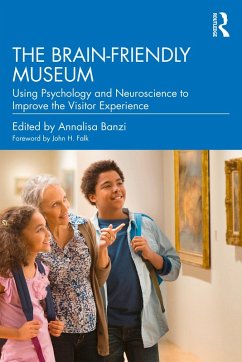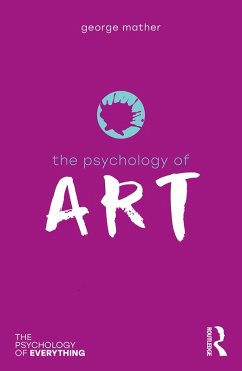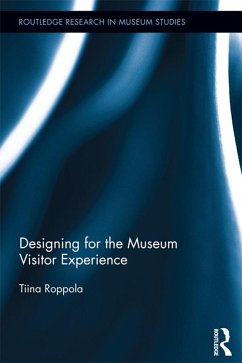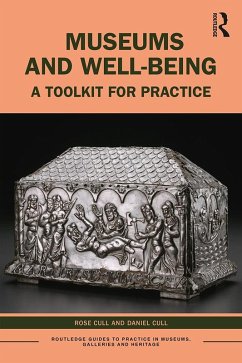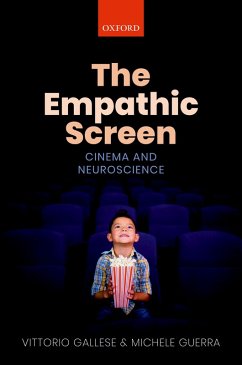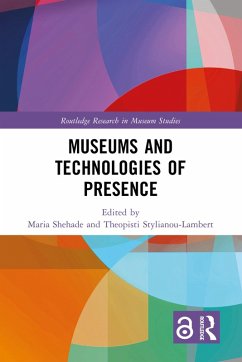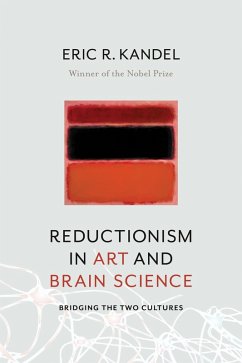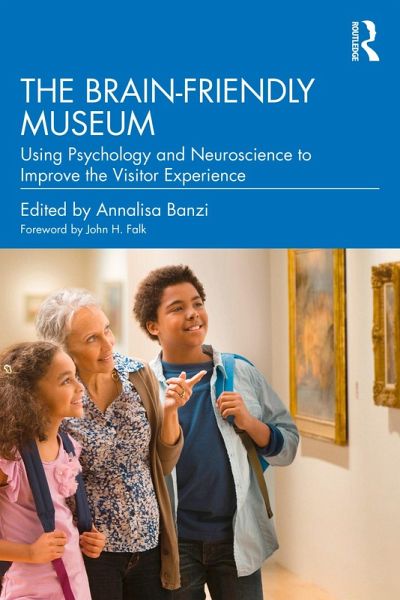
The Brain-Friendly Museum (eBook, ePUB)
Using Psychology and Neuroscience to Improve the Visitor Experience
Redaktion: Banzi, Annalisa
Versandkostenfrei!
Sofort per Download lieferbar
36,95 €
inkl. MwSt.
Weitere Ausgaben:

PAYBACK Punkte
18 °P sammeln!
The Brain-Friendly Museum proposes an innovative approach to experiencing and enjoying the museum environment in new ways, based on the systematic application of cognitive psychology and neuroscience.Providing practical guidance on navigating and thinking about museums in different ways, the book is designed to help develop more fulfilling visitor experiences. It explores our cognitive processes and emotions, and how they can be used to engage with and enjoy the museum environment, regardless of the visitor's background, language, or culture. The book considers core cognitive processes, includ...
The Brain-Friendly Museum proposes an innovative approach to experiencing and enjoying the museum environment in new ways, based on the systematic application of cognitive psychology and neuroscience.
Providing practical guidance on navigating and thinking about museums in different ways, the book is designed to help develop more fulfilling visitor experiences. It explores our cognitive processes and emotions, and how they can be used to engage with and enjoy the museum environment, regardless of the visitor's background, language, or culture. The book considers core cognitive processes, including memory, attention, and perception, and how they can successfully be applied to the museum environment, for example, in creating more effective displays. Using evidence-based examples throughout, the book advocates for a wellbeing approach improving visitor experience, and one that is grounded in research from psychology and neuroscience.
This book is a must-read for all museum practitioners and psychologists interested in the relationship between cultural heritage, psychology, and neuroscience. It will also be of great interest to art therapists, neuroscientists, university students, museum stakeholders, and museum lovers.
Providing practical guidance on navigating and thinking about museums in different ways, the book is designed to help develop more fulfilling visitor experiences. It explores our cognitive processes and emotions, and how they can be used to engage with and enjoy the museum environment, regardless of the visitor's background, language, or culture. The book considers core cognitive processes, including memory, attention, and perception, and how they can successfully be applied to the museum environment, for example, in creating more effective displays. Using evidence-based examples throughout, the book advocates for a wellbeing approach improving visitor experience, and one that is grounded in research from psychology and neuroscience.
This book is a must-read for all museum practitioners and psychologists interested in the relationship between cultural heritage, psychology, and neuroscience. It will also be of great interest to art therapists, neuroscientists, university students, museum stakeholders, and museum lovers.
Dieser Download kann aus rechtlichen Gründen nur mit Rechnungsadresse in A, B, BG, CY, CZ, D, DK, EW, E, FIN, F, GR, HR, H, IRL, I, LT, L, LR, M, NL, PL, P, R, S, SLO, SK ausgeliefert werden.




